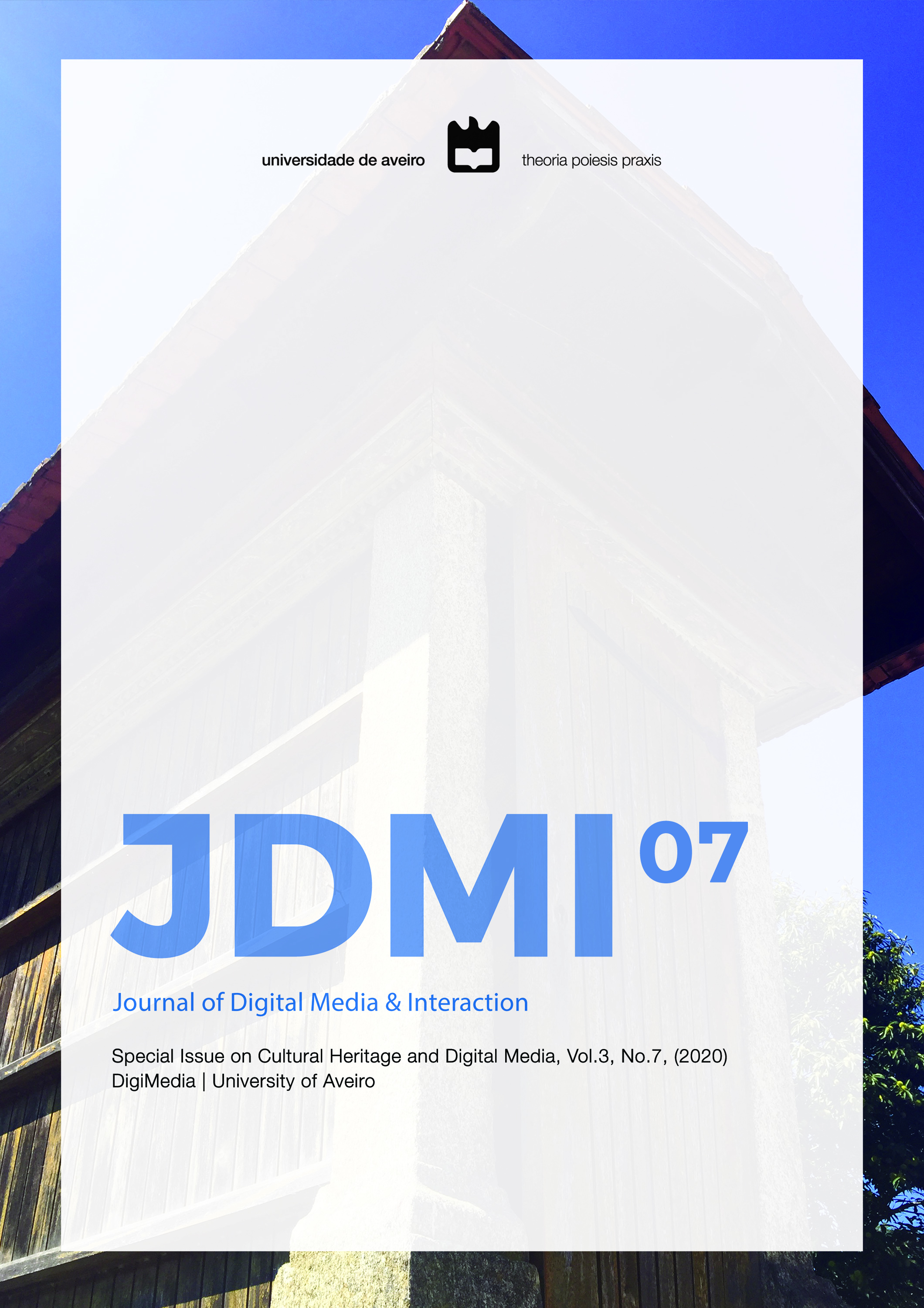A Digitalização do Património Cultural na Perspetiva do Copyright e do Direito de Autor
(The digitisation of cultural heritage from the perspective of Copyright and Author’s Rights)
Abstract
Este artigo analisa as questões que as leis do Copyright e do Direito de Autor colocam ao recente processo de digitalização do património cultural da humanidade. Após uma resenha da evolução histórica e fundamentos das leis do copyright, será visto como os museus adaptaram as leis de proteção intelectual à digitalização e disposição ao público das suas coleções. Será de seguida analisado o caso da digitalização de livros, referindo-se o modo como as licenças Cretaive Commons têm vindo a ser utilizadas. Referimos de seguida o projeto Europeana, sendo finalmente analisada a recente Diretiva Europeia do Copyright. O fio condutor do artigo consiste em sublinhar a importância do domínio público não apenas na perspetiva da conservação do património cultural, mas também como base para as criações futuras.
(This article analyses the issues that Copyright and Author’s Rights laws pose to the recent process of digitizing the cultural heritage of humanity. After a review of the historical evolution and fundamentals of copyright laws, it will be seen how museums have adapted intellectual protection laws to scanning and public availability of their collections. The case of books scanning will then be analysed, referring to the way in which Creative Commons licenses have been used. We then refer to the Europeana project, and finally the recent European Copyright Directive is analysed. The guiding thread of the article is to underline the importance of the public domain not only in terms of the conservation of cultural heritage but also as a basis for future creations.)
Downloads
References
Armstrong, E. (1990). BeforeCopyright -The French Book-Privilege System 1498-1526. Cambridge: Cambridge University Press.
Bracha, O. (2008). The Ideology of Authorship Revisited: Authors, Markets, and Liberal Values in Early American Copyright. The requirement of originality.Yale L. J., 118, pp. 186-271.
Lévy, M.:, Niggemann, E,;Jacques, D, (2011).The New Renaissance: Report of the Comité des Sages on Bringing Europe's Cultural Heritage Online. Recuperado de https://op.europa.eu/en/publication-detail/-/publication/79a38a23-e7d9-4452-b9b0-1f84502e68c5.
Frosio, G. (2014). Rediscovering Cumulative Creativity From the Oral Formulaic Tradition to Digital Remix: Can I Get a Witness?. 13 J. MARSHALL REV. INTELL. PROP. L.pp. 343-395.
Hesse, C. (2002). The rise of intellectual property, 700 b.c.–a.d.2000: an idea in the balance.Dædalus, Spring.
Hesse, C. (2002).The Rise of Intellectual Property, 700 B.C.-A.D. 2000: An Idea in the Balance. Daedalus, Vol. 131, 2, pp. 26-45.
Keller, P. (2019). Making the best out of the Copyright in theDigital Single Market DirectiveAn overview of implementation opportunities and risks. Recuperado de https://publicspace.online/files/191222making_the_best_out_of_the_CDSM_directive.pdf.
Mazzone, J. (2011). Copyfraud and other abuses of intellectual property law. Stanford University Press: Stanford.
Landes, W. Posner, M. (2003). The Economic Structure of Intellectual Property Law. Cambridge: Harvard University Press.
Machuco Rosa, A. (2009). Os Direitos de Autor e os Novos Media. Coimbra: Angelus Novus.
Machuco Rosa, A. (2015). Do Copyright às Marcas Registadas –História e Fundamentos da Propriedade Intelectual. Lisboa: Chiado Editora.
Margoni,T.(2016) The harmonisation of EU copyright law: The originality standard. In:Perry, M.(ed.)GlobalGovernanceofIntellectualPropertyinthe21stCentury.Springer International Publishin: Switzerland, pp. 85-105.
Mendis, S. (2019). A Copyright Gambit. On the Need for Exclusive Rights in Digitised Versions of Public Domain Textual Materials in Europe. Berlin: Springer.
Wienand, P. Booy, A., Fry, R. (2000). A Guide to Copyright for Museums and Galleries. New York: Routledge.
Pfister, L. (2010). Author and Work in the French Print Privileges System: Some Milestone. In:Privilege and Property Essays on the History of Copyright, R. Deazley, M. Kretschmer, L. Bentley (Eds.). Open Books, pp. 115-136.
Rose, C. (2003). Romans, Roads, and Romantic Creators: Traditions of Public Property in the Information Age. 66LawandContemporaryProblems, pp. 89-110. Recuperado de https://scholarship.law.duke.edu/lcp/vol66/iss1/4
Samuelson. (2010). Google Book Search and the Future of Books in Cyberspace. Minnesota Law Review, 503, pp. 1308-1374. Recuperado de https://scholarship.law.umn.edu/mlr/5031308,1374
Sims, N. (2017). Rights, ethics, accuracy, and open licenses in online collections: What’s “ours” isn’t really ours. College & Research Libraries News, S.l., v. 78, n. 2, p. 79-82 Recuperado de: https://crln.acrl.org/index.php/crlnews/article/view/9620/11028
Stallman, R. (2001). Free Software, Free Society: Selected essays of Richard M. Stallman. Boston: GNU Press.
Sullivan, A. (2016) Cultural Heritage & New Media: A Future for the Past?15 J. Marshall Rev. Intell. Prop. L. 604, pp. 604-646. Recuperadi https://repository.jmls.edu/cgi/viewcontent.cgi?article=1392&context=ripl
Needham, C. (2017). Understanding copyfraud: Public domain images and false claims of copyright. Art Documentation: Bulletin of the Art Libraries Society of North America, 36(2), pp. 219–230. Recuperado de https://doi.org/10.1086/694241
Copyright (c) 2020 António Machuco Rosa

This work is licensed under a Creative Commons Attribution-NonCommercial-NoDerivatives 4.0 International License.
Authors who publish in the JDMI agree to the following terms:
-
Authors retain copyright and grant the journal the right of first publication with the work simultaneously licensed under a Creative Commons BY-NC-ND 4.0. This licensing allows others to share the work with no changes and acknowledgement of the work's authorship and initial publication in this journal, but not for commercial use.
-
Authors are able to enter into separate, additional contractual arrangements for the non-exclusive distribution of the journal's published version of the work (e.g., post it to an institutional repository or publish it in a book), with an acknowledgement of its initial publication in this journal.
-
Authors are permitted and encouraged to post their work online (e.g., in institutional repositories or on their website) after publication, as it can lead to productive exchanges, as well as earlier and greater citation of published work.
Copyrights to illustrations published in the journal remain with their current copyright holders.
It is the author's responsibility to obtain permission to quote from copyright sources.
Any fees required to obtain illustrations or to secure copyright permissions are the responsibility of authors.
Additional Information
All correspondence concerning contributions, books and other review material should be sent to: deca-jdmi@ua.pt


